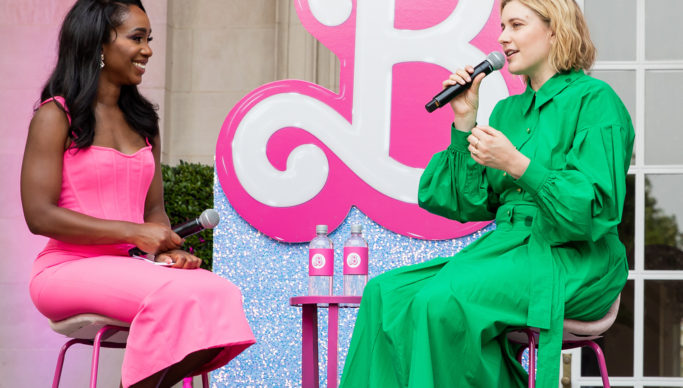
Adam and Eve, Barbie and Ken?
- By Gladys McBride --
- 18 Mar 2024 --
Barbie” director Greta Gerwig was raised in the Unitarian Universalist faith, a liberal religion that describes itself as a “free and responsible search for truth and meaning.” It is a wide-tent movement, subscribing to no one scripture as the path to spiritual growth, instead drawing wisdom from all world religions, including Judaism and Christianity, and one’s own experiences. Gerwig brought that faith and what she learned at St. Francis High School, an all-girls Catholic school, when she conceived and co-wrote her Oscar-nominated film.
Margot Robbie, the film’s star and co-producer, reports that before the cameras rolled, Gerwig brought the cast together and read them a poem she’d written roughly paralleling the Catholic Apostles Creed. Thus, she set a tone for the very serious themes of faith, reality, and redemption that are at the heart of what, at first glance, may appear to be a jolly farcical romp.
Are Ken and Barbie an allegory for Adam and Eve? Is Barbieland the Eden—the oh-so-perfect Paradise that Barbie dares to exit, wanting to taste the fruits of real-life experience? According to Congregational Pastor Dwight Lee Wolter, the answer is an emphatic yes.
Yearning for something more than the plastic 24/7 party of her home, Barbie ventures “East of Eden” to Los Angeles, a very “real life” place (well, at least, if you compare it to Barbieland). There she meets Ruth, her “creator,” who named her after her own daughter (that’s right, created in her own image—Genesis 1:27). In a telling close-up, Ruth passes a cup of tea to Barbie, their hands placed in an exact re-creation of the Sistine Chapel God, the father, and his creation, Adam. Ruth acquaints Barbie with what she’s letting herself into by becoming real: suffering, sorrow, pain and death. To which her creation takes the leap of faith with an excited “Yes!”
I’ll leave you to make the rest of the parallelisms and Easter eggs to Scripture contained in the film, as well as the question of why Ken begins clueless, continues clueless and ends only slightly less clueless—unless it’s Gerwig’s gentle way of letting us know that it’s the women who need to take the first step in all things, just as Eve did in Eden.
Pastor Wolter sees nothing wrong, untoward or demeaning about packing deep spiritual questions like life and death, eternal life versus pain and suffering into a colorful musical confection. After all, as he says, “Jesus was a storyteller, but while stories about such things as a mustard seed may have resonated to an agrarian society, they do not seem to now. So, why not stories about the existential crisis of a plastic doll?”
Photo by Timothy Vollmer / CC BY-SA 2.0



















